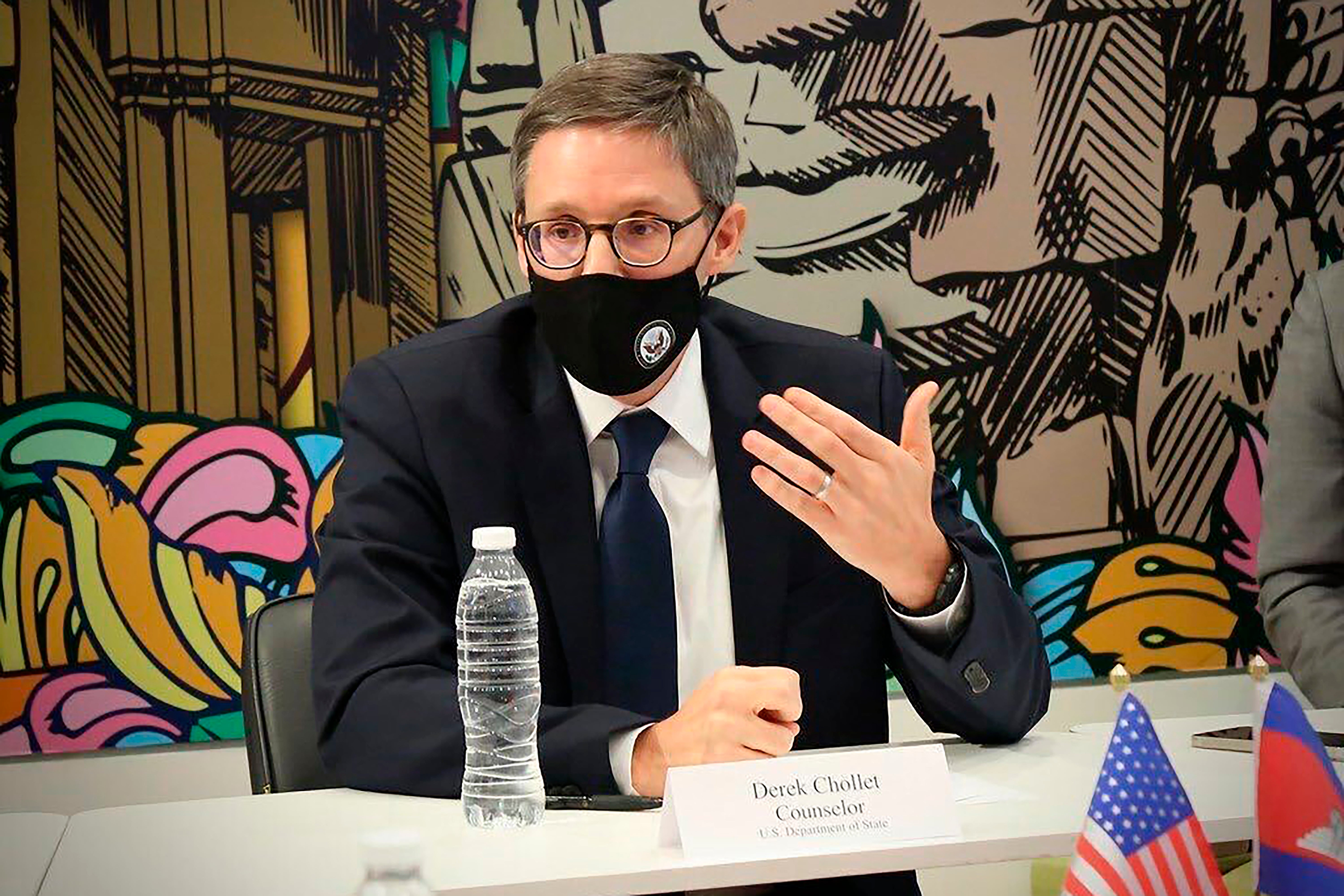US envoy conveys concerns to Cambodia about Myanmar, China
A U.S. State Department envoy has conveyed concerns to top Cambodian officials about bilateral and regional issues, including the crisis in Myanmar and the construction of Chinese military facilities at a Cambodian naval base

Your support helps us to tell the story
From reproductive rights to climate change to Big Tech, The Independent is on the ground when the story is developing. Whether it's investigating the financials of Elon Musk's pro-Trump PAC or producing our latest documentary, 'The A Word', which shines a light on the American women fighting for reproductive rights, we know how important it is to parse out the facts from the messaging.
At such a critical moment in US history, we need reporters on the ground. Your donation allows us to keep sending journalists to speak to both sides of the story.
The Independent is trusted by Americans across the entire political spectrum. And unlike many other quality news outlets, we choose not to lock Americans out of our reporting and analysis with paywalls. We believe quality journalism should be available to everyone, paid for by those who can afford it.
Your support makes all the difference.A U.S. State Department envoy conveyed concerns to top Cambodian officials on Friday about bilateral and regional issues, including the crisis in Myanmar and the construction of Chinese military facilities at a Cambodian naval base.
The visit by Counselor Derek Chollet to Phnom Penh came days after the United States ordered an arms embargo on Cambodia, citing deepening Chinese military influence, corruption and human rights abuses in the Southeast Asian country.
Chollet told journalists his discussions with Cambodian Foreign Minister Prak Sokhonn involved issues related to Myanmar and China as well as the role Cambodia intends to play as the new chair of the Association of Southeast Asian Nations, whose efforts to mediate peace in Myanmar have fallen short.
Myanmar has become increasingly unstable since its army seized power in February, ousting the elected government of Aung San Suu Kyi. The military has sought to forcefully crush popular opposition to its takeover, which could end up plunging the country into civil war, U.N. experts have said.
Washington takes a hard line against Myanmar’s military-installed government, and has applied targeted diplomatic and economic sanctions against the ruling generals. ASEAN prefers soft measures when dealing with one of its members, and Cambodian Prime Minister Hun Sen said this week he plans to travel to Myanmar next month for talks with its leaders.
Chollet said his talks with Prak Sokhonn and other officials were open, workmanlike and constructive.
He said he reiterated Washington’s concerns about Cambodia’s relationship with China that led to it applying the arms embargo.
“Unfortunately we have not seen the type of progress we hoped for since we have been registering these concerns, and I should say these concerns go back several years,” he said. He described the links with China as not just a threat to the interests of the United States and the region, but also to Cambodia.
Beijing in the last decade has pushed hard to extend its influence in Southeast Asia, China is Cambodia’s biggest investor and closest political partner.
China’s support allows Cambodia to disregard Western concerns about its poor record in human and political rights, and in turn Cambodia generally supports Beijing’s geopolitical positions on issues such as its territorial claims in the South China Sea.
Chollet said he also discussed the construction of new Chinese military facilities at Cambodia’s Ream Naval Base, a matter of strong U.S. concern.
Ream faces the Gulf of Thailand, adjacent to the South China Sea, where China has aggressively asserted its claim to virtually the entire strategic waterway. The U.S. has refused to recognize China’s sweeping claim.
“We are concerned by the possibility of a PRC military facility,” he said, referring to China by its official name, the People’s Republic of China.
Cambodia has repeatedly denied it will host a naval base exclusively for Chinese use.
“We believe it's very important to be fully transparent about the intent and about the nature of that relationship, the scope of it as well, what’s going on," Chollet said.